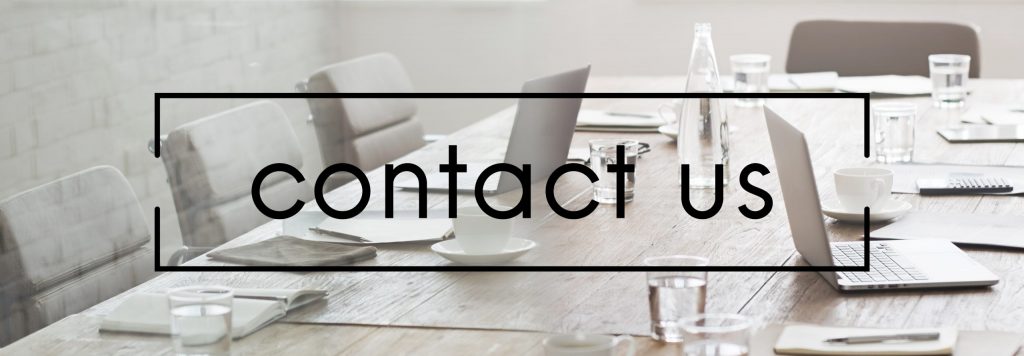企業が新しく人を採用する際面接は欠かせません。面接は企業側があなたのことをより深く知ることができる機会でもあり、自分の意思を示す機会でもあります。自分を最大限アピールできるように面接で聞かれる質問を事前に把握しておきましょう。答えを考えておくと本番で焦ることもなく、きちんと質問に答えれるでしょう。
今回は面接で聞かれやすい質問6つを答え方や人事側がなぜその質問を聞くのかなどの情報も踏まえて解説していきます。

頻出質問
1. 自己紹介をしてください。
2. 自己PRをしてください。
3. 志望動機を教えてください。
4. 学生時代一番なにを頑張りましたか?
5. 短所と長所を教えてください。
6. 就職後はどのようなことをしたいですか?
1. 自己紹介をしてください。
自己紹介は面接の一番冒頭で聞かれます。ここでは自分について深掘りするのではなく1分程度で簡潔に自分を紹介しましょう。自分の名前、出身又は在学中学校名、学部/学科名、所属部活/サークル名、課外活動についてなどを話すといいでしょう。
自分の情報を伝え終わったら面接への意気込みや感謝の気持ちを伝えることを忘れないようにしましょう。
2. 自己PRをしてください。
自己紹介と自己PRの違いがわからない人も多いでしょう。自己紹介で簡潔に自分の情報を述べるのと比べて自己PRでは文字通り自分のPR(アピール)をします。自己PRでは自分の強み、またその強みがどのような場面で活かせたかなどのエピソードに加えて、将来その強みを企業でどう活かしていきたいかなどについて話します。
話したいことは多いかもしれませんが自己紹介と同様、1分程度を目安に話すことを考えましょう。面接はあくまで対話なので一方的に話し続けることを避けましょう。長時間話し続けてしまうと情報が多すぎて面接官を混乱してしまうこともあるので答えは簡潔に述べることを心がけましょう。
3. 志望動機を教えてください。
志望動機は面接官に意欲がアピールできる質問なので、自分がなぜ企業に入社したいのか、何をやりたいのかなどを明確にすることが大切です。自分のやりたいことと企業の強みがリンクする志望動機を作ることができれば、面接官にとっても就活生が働く姿を想像しやすいです。
志望動機について話す際は結論→業界・企業でならない理由→仕事で貢献する方法の順番で話すと面接官も理解しやすく、就活生が企業で働いているイメージがつきやすいでしょう。
4. 学生時代一番なにを頑張りましたか?
学生時代に頑張ったことは幅広い内容からアピール可能です。部活動、サークル活動、アルバイト、ボランティア、趣味などアピールすることは自由です。
大切なのは「なぜそれに力を注いだのか」「どう工夫したのか」です。
工夫した方法によって、どのように仕事をするのかを面接官が想像しやすくなります。単に思い出話を伝えるだけにならないよう注意して、自身の個性や魅力を伝えることを意識しましょう。
5. 短所と長所を教えてください。

面接官が長所と短所について質問する場合、自己分析ができているかどうか知りたいという意図があります。
面接で長所と短所について答える場合、長所は仕事への活かし方を、短所は克服した、あるいは改善を目指していることを伝えましょう。
長所を活かしてどのように仕事に貢献したいのかを伝えることで、採用のメリットを感じてもらうことが大切です。短所については、自分で短所だと認める素直さと今後改善していくという前向きさが重要になります。
6. 就職後はどのようなことをしたいですか?
就活は就職して終わりではなく、内定を獲得し入社してからが社会人生活の始まりです。そのため、就職後について聞かれることも多いです。
仕事の取り組み方や目標、キャリアについて答えると好印象になりやすいでしょう。大切なのは「企業で働いている姿がイメージができること」であるため、具体的な仕事の描写も交えて伝えるとより評価されやすいです。
今回得た情報を踏まえて質問ごとに自分の答えを考えてみましょう。全ての質問において簡潔に情報を伝えれることが重要です。専門用語などがある場合は誰でもわかるように説明しましょう。
同じ内容でも伝え方次第で評価は変わるため、回答内容、アピールの方法の両方を考えなければなりません。面接は難易度が高いですが、事前の対策次第でハードルはいくらでも下げられます。徹底した事前対策によって難易度は下げられるため、念入りな準備で面接当日を迎えましょう。
_________________________________________________________________________________________
For companies, interviews are an essential step in the hiring process. Interviews are an opportunity for the company to get to know you better and for you to express your intentions. It is important to understand the questions that will be asked in the interview beforehand so that you can present yourself to the best of your ability. If you have your answers prepared, you will not feel rushed and will be able to answer the questions properly.
In this article, six questions that you are most likely to be asked in an interview will be discussed, including information on the answers and reasoning behind the interviewers asking these questions.
Frequently Asked Questions
1. Please introduce yourself.
2. Please tell us about yourself. (self-promotion)
3. What is your reason for applying?
4. What did you work hard on as a student?
5. Please tell us your weaknesses and strengths.
6. What do you want to do after you get the job?
1. Please introduce yourself.

You will be asked to introduce yourself at the very beginning of the interview. Instead of digging deep into yourself here, you should briefly introduce yourself in about one minute. It is a good idea to start with your name, the name of the school you graduated from or currently attended, the name of your department, the club activities you belong to, and your extracurricular activities.
This part of the interview acts as an ice breaker and a chance for the interviewer to go over your information.
Don’t forget to express your enthusiasm and gratitude for the interview when you have finished introducing yourself.
2. Please tell me about yourself. (self-promotion)
Many people may not quite understand the difference between self-introduction and self-promotion. While self-introduction is a brief description of yourself, self-promotion is literally a PR (appeal) of yourself. In self-promotion, you will talk about your strengths, the situations in which you were able to utilize those strengths, and how you would like to utilize those strengths in the company in the future.
You may have a lot to say, but as with the self-introduction, you should aim to keep your talk to about one minute. An interview is a dialogue, so avoid one-sided conversation. If you talk for too long, you may confuse the interviewer with too much information, so try to keep your answers brief and concise.
3. What is your reason for applying?
This question allows you to demonstrate your motivation to the interviewer, so it is important to clarify why you want to join the company and what you want to do. If you can state your reasoning and link what you want to do with the strengths of the company, it will be easier for the interviewer to imagine you working there.
When talking about your reasoning, it is easier for the interviewer to understand if you talk in the following order: conclusion → reason why you want to work at the industry or company → how you can contribute to the company through your work.
4. What did you work hard on as a student?
You can choose from a wide range of things that you worked hard on during your school years. You can talk about club activities, circle activities, part-time jobs, volunteer work, hobbies, and so on.
What is important is why you put so much effort into it and how you took part in it.
Be careful not to simply tell a memorable story, and be conscious of conveying your own personality and strength through your experience.
5. Please tell us your weakness and strength.

When an interviewer asks you about your strengths and weaknesses, the intention is to know if you have done your self-analysis.
When answering about your strengths and weaknesses in an interview, tell them how you have applied your strengths to your work, and about how you have overcome or are trying to improve on your weaknesses.
It is important to convey how you want to utilize your strengths to contribute to the job, so that the interviewer will feel that hiring you will be beneficial. As for your weaknesses, it is important that you are honest and admit that you have weaknesses, while also conveying that you are trying to improve on them.
6. What do you want to do after you get the job?
Job hunting does not end when you get the job, but after you get a job offer and join a company, your working life begins. For this reason, you will often be asked about your post-employment life.
You will make a good impression if you answer clearly about your work approach, goals, and career. The important thing is to be able to picture yourself working at the company, so if you include specific descriptions of your future prospects, you will be more likely to be positively evaluated.
Think about your answers to each question based on the information you have obtained from this article. It is important to be able to give concise information for all of the questions. If there are technical terms in what you want to talk about, explain them in a way that anyone can understand.
The same information can be evaluated differently depending on how you deliver it, so you need to think about both the content of your answers and how you can appeal to the interviewer. Interviews can be challenging, but you can lower the bar as much as you want by taking the necessary precautions. The difficulty level can be lowered by thorough preparation, so be sure to prepare carefully for the day of the interview.
Enjin株式会社とは
Enjin株式会社では、日本にいる外国人留学生や海外にいる日本語学習者(Japalings)と優秀な外国人人材を獲得したいという企業のマッチングをしています。
◆外国人留学生への支援
・インターンシップ紹介
・アルバイト紹介
・就職紹介(新卒採用・中途採用)
◆海外大学に通う外国人大学生への支援
・特定活動インターンシップ、サマージョブ
◆海外の日本語学習者への支援
・日本への留学
・特定技能取得
母国語、日本語、英語などの多言習得はもちろんのこと、将来有望な若者が数多く登録しています。

